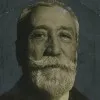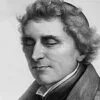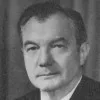The plaque at the front of the courtroom, high on the wall, was permanent and yet its words were new each time Jack read them, read them half against his will, his eyes moving restlessly forward and up to them while testimony droned on: Conscience Speaks the Truth.
Quotations about:
court
Note not all quotations have been tagged, so Search may find additional quotes on this topic.
It is the certainty that they possess the truth that makes men cruel.
[C’est la certitude qu’ils tiennent la vérité qui rend les hommes cruels.]
Anatole France (1844-1924) French poet, journalist, novelist, Nobel Laureate [pseud. of Jaques-Anatole-François Thibault]
(Misquotation)
Widely attributed (in French and English) to Anatole France, but not found in his works, including the one location it is sometimes cited from, Les Dieux Ont Soif [The Gods Are Thirsty, The Gods Are Athirst, The Gods Will Have Blood] (1912), in either English translation or, more importantly, in the original French.
While thematically keeping in the novel's depiction of the French Revolution and the Terror, the closest match to the quote I can find is this portion of ch. 22, talking about the expediting of the trials of those charged with counter-revolutionary crimes, eliminating the need to prove a misdeed by simply inquiring as to the accused's beliefs.Justice thus abbreviated satisfied them; the pace was quickened, and no obstacles were left to fret them. They limited themselves to an inquiry into the opinions of the accused, not conceiving it possible that anyone could think differently from themselves except in pure perversity. Believing themselves the exclusive possessors of truth, wisdom, the quintessence of good, they attributed to their opponents noting but error and evil. They felt themselves all-powerful; they envisaged God.
[tr. Allinson (1913), Jackson (1921)]Justice, thus curtailed, satisfied them; the pace was quickened and no obstacles were left to confuse them. They confined themselves to inquiring into the opinions of the accused, not conceiving it possible that anyone, except from pure perversity, could think differently from themselves. Believing themselves to possess a monopoly of truth, wisdom and goodness, they attributed to their opponents all error, stupidity and evil. They felt themselves omnipotent: their eyes had seen God.
[tr. Davies (1979)]La justice abrégée les contentait. Rien, dans sa marche accélérée, ne les troublait plus. Ils s’enquéraient seulement des opinions des accusés, ne concevant pas qu’on pût sans méchanceté penser autrement qu’eux. Comme ils croyaient posséder la vérité, la sagesse, le souverain bien, ils attribuaient à leurs adversaires l’erreur et le mal. Ils se sentaient forts : ils voyaient Dieu.
[Original]
At court, far from regarding ambition as a sin, people regard it as a virtue, or if it passes for a vice, then it is regarded as the vice of great souls, and the vices of great souls are preferred to the virtues of the simple and the small.
[A la cour, bien loin de faire un crime de l’ambition, on s’en fait une vertue; ou si elle y passe pour un vice, du reste on la regarde comme le vice des grandes âmes, et l’on aime mieux les vices des grandes âmes que les vertus des simples et des petits.]
Louis Bourdaloue (1632-1704) French Jesuit priest, preacher
Quoted in Bernart Gorethuysen, The Bourgeois: Catholicism vs. Capitalism in Eighteenth-Century France (1927) [tr. Ilford (1968)]
(Source)
But there is one way in this country in which all men are created equal — there is one human institution that makes a pauper the equal of a Rockefeller, the stupid man the equal of an Einstein, and the ignorant man the equal of any college president. That institution, gentlemen, is a court. It can be in the Supreme Court of the United States or the humblest J.P. court in the land, or this honorable court which you serve. Our courts have their faults, as does any human institution, but in this country our courts are the great levelers, and in our courts all men are created equal.
Be brief, be pointed, let your matter stand
Lucid in order, solid and at hand;
Spend not your words on trifles but condense;
Strike with the mass of thought, not drops of sense;
Press to close with vigor, once begun,
And leave, (how hard the task!) leave off, when done.
I used to say that, as Solicitor General, I made three arguments in every case. First came the one I had planned — as I thought, logical, coherent, complete. Second was the one actually presented — interrupted, incoherent, disjointed, disappointing. The third was the utterly devastating argument that I thought of after going to bed that night.
Robert H. Jackson (1892-1954) US Supreme Court Justice (1941-54), lawyer, jurist, politician
“Advocacy Before the Supreme Court,” Morrison Lecture, California State Bar (23 Aug 1951)
(Source)
Reprinted in the Cornell Law Quarterly (Fall 1951). Legal citation "Advocacy Before the Supreme Court," 37 A.B.A.J. 801, 803 (1951).







